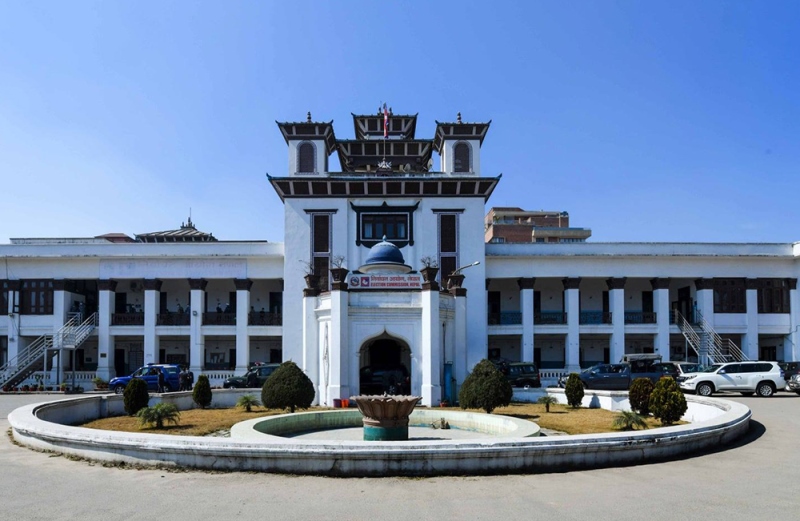

As the nation gears up for local-level elections to be held on May 13, the Election Commission reports a total of 17,733,723 registered voters partaking in the process. Amongst the almost 18 million, 8,992,010 are registered as males; 8,741,530 registered female voters, and 183 registered in the ‘other’ category, the latter a considerably minute proportion of the decision-making populace.
The gender data of voters tells an eerily similar tale to the current state of representation of women and the LGBTQIIA+ community in the political sphere. Although Article 42 Clause 1 of the Constitution of Nepal specifies that, ‘the socially backward women, Dalit, indigenous people….shall have the right to participate in the State bodies based on the inclusive principle’, the laws remain statutory yet unimplemented to any actionable level.
While the Constitution of Nepal, Article 223, does define that one woman and one Dalit woman must be a candidate from each party in each constituent and that one woman and one Dalit woman must be elected into local and state bodies, the impact of these positions hold, in majority cases, are those of mere ‘placeholders’; elected merely to fill up a quota as defined by the laws of the land.
The 2017 local level elections saw only 2.76% of women being elected into Mayoral positions, while due to the quota requirements an overwhelming 93.82% were elected into Deputy Mayoral roles. As for Dalit women, the last local level elections saw 6568 Dalit women elected into Local and State bodies in various positions.
Despite the rather skewed numbers due to the quota, parties remain hesitant in endorsing inclusivity mandates as required by the Constitution, with many parties openly flouting Article 269 Clause 15(4) of the Constitution that pertains to 1/3rd of the party’s members to be women representatives.
“The Election Commission has always remained ever committed to inclusion and establishing institutions and directives in our modus operandi to help integrate more Women and LGBTQIIA+ into the electoral process, may it be as candidates or as voters,” says Deputy Spokesperson of the Election Commission, Surya P Aryal. Further elaborating on the Election Commission’s (EC) commitment to inclusion and ensuring representation within its mandate, Aryal mentions the provisions in place to encourage and ease the voting process for women and the LGBTQIIA+ community.
EC, as in the past years, has put provisions for separate priority lines for women voters. While the LGBTQIIA+ community members shall be given priority clearance to vote first if they identify as a member of the community. “We would’ve established a separate ‘other’ gender line for our fellow citizens of the LGBTQIIA+ community, however, the numbers are spread out, If there were more than 25 voters registered from the community in one constituency then we would provide the service there however this is not the case hence we’ve decided to go down the priority voting route,” Aryal explains.
“The election commission and government should have provided a separate queue for our community, regardless of the number of voters registered under the flag or regardless of the gender, the state should’ve made provisions for a gender-neutral queue,” voices LGBTQIA rights activist Bhakti Shah. Many of the members of the community upon returning home to villages usually face discrimination from society as they are forced to be on male and female lines.
Speaking of the current provisions taken by the EC, Shah says that the priority voting concept is a noble idea yet it still falls short on the privacy side of the matter. “There might be members of the community who wish not to disclose their sexual orientation or maybe don’t fit into binary definitions therefore a gender-neutral/gender-friendly line would’ve made the voting process for our community members a lot more convenient and would’ve made us feel a lot safer,” adds Shah.
The representation the LGBTQIIA+ community receives in our state bodies is also rather deplorable. The Constitution has provided a plethora of opportunities for minorities of every kind and the laws to some degree have seen the inclusion of these minorities crank up in numbers yet the LGBTQIIA+ community sees itself shunned. “Much like the Dalit quota, the woman quota, and the quotas available for a lot of minorities, we have been actively campaigning and suggesting that parties create a quota for our community. Having one of our voices representing our concerns on a political level is quintessential to truly follow in the spirit of inclusiveness and equality,” affirms Shah.
While the nation with some of the more progressive laws of the land has seen considerable strides made in the direction of equality and representation, the need to further build, strengthen and enact these statutes needs a lot more effort and commitment.